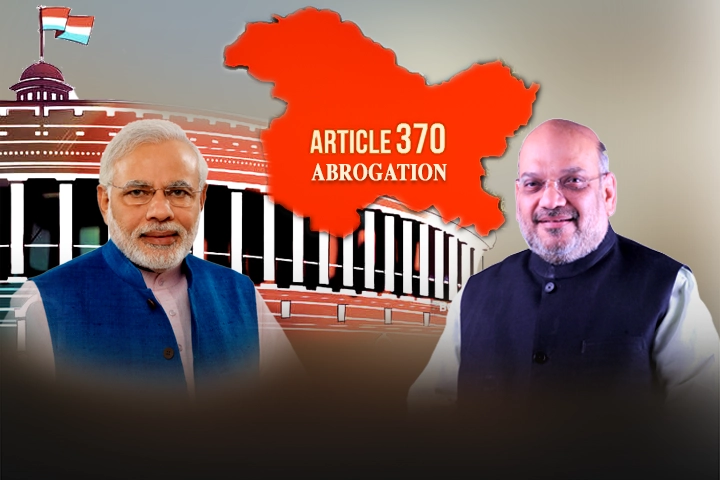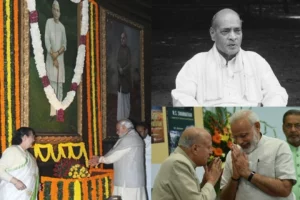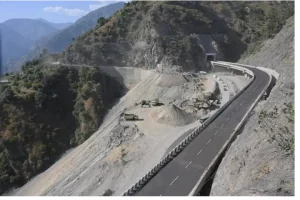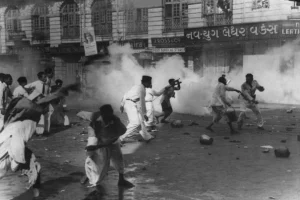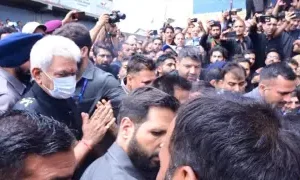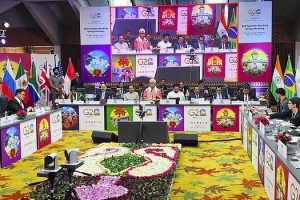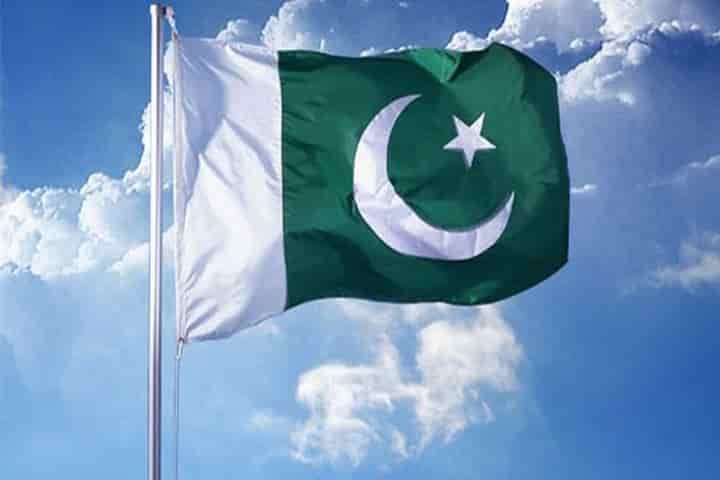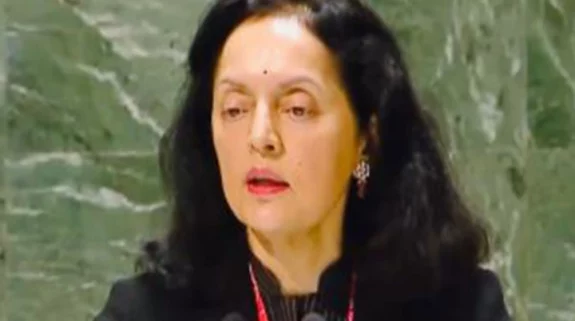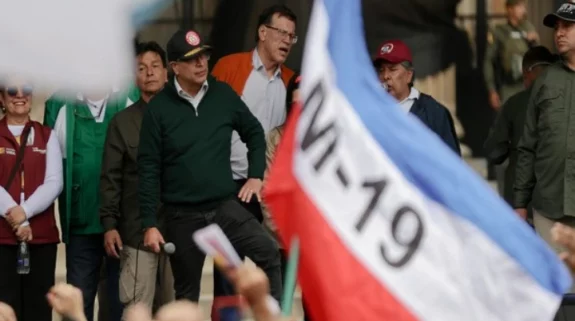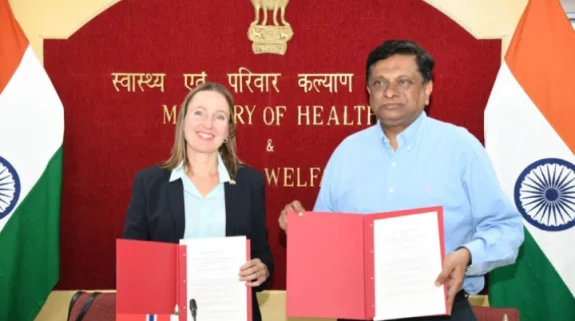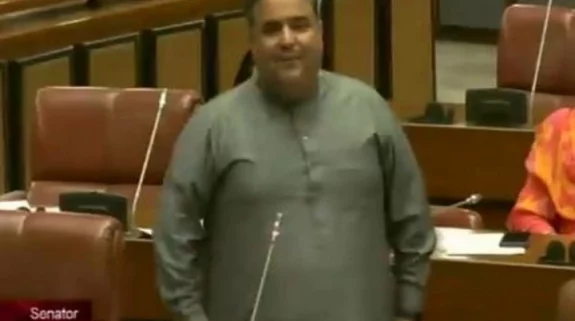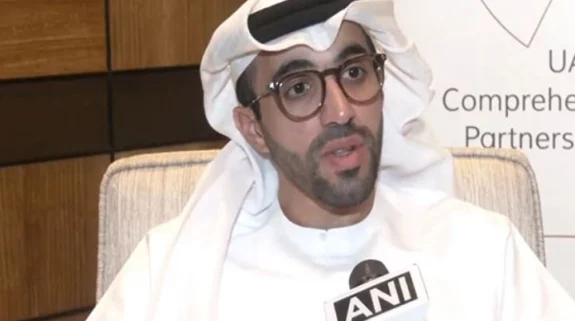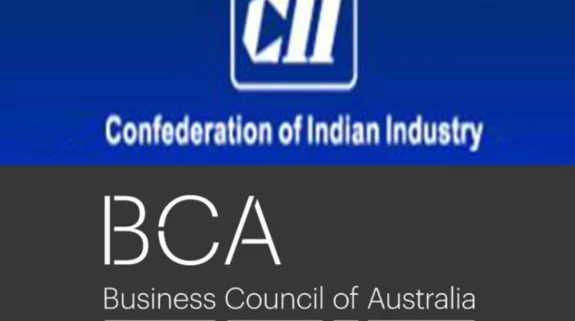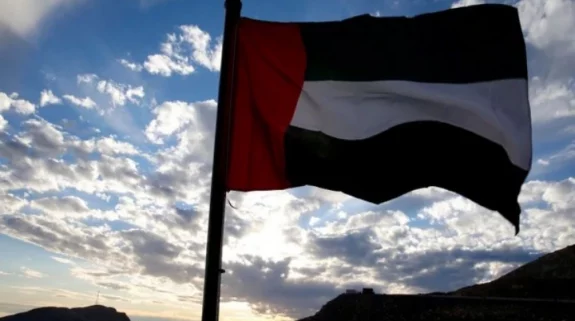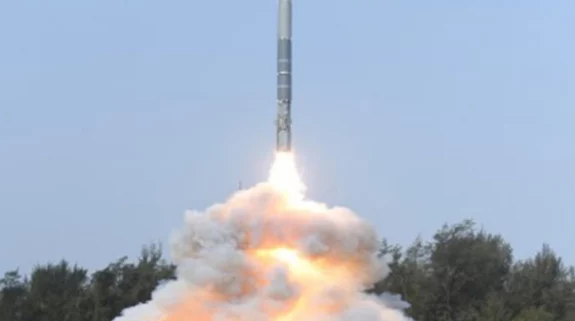The only thing a person like me can do is to hang my head in shame after seeing the arguments being given in the Supreme Court on the Article 370 issue. The only other thing I can do is to express my anguish in words and make my countrymen- particularly the youth aware of certain historical facts in order to put some sense among those dynastic slaves of Congress and the opportunistic opposition who are trying to defend the wrongs done in the past by Nehru the Great only to be continued by his present heirs. I am also confident that many of the historical facts I am going to list here, the “My Lords” too are not aware of for these have been dug through historical research.
Let me raise this question at the outset that can the Supreme Court or should the Supreme Court take up petitions related to the territorial integrity of India? Should it allow such arguments in the court by a lawyer who himself in the Parliament was a party to a decision that Kashmir is an integral part of India but now because of political convenience and the fee he charges, makes a summersault in the SC that Kashmir is a disputed issue?
What a joyous day this has been for Pakistan and its media. An issue settled and even agreed by most foreign countries at the international level who started showing POK and Aksai Chin as integral parts of India in their maps becomes a laughable issue for them also on seeing the attitude of our judiciary in this regard. Will someone re-read the unanimous resolution passed by the Indian Parliament on 22th February, 1994 under the Congress Government? I reproduce it as many countrymen are either not aware of it or might have forgotten.
Dr. @Swamy39 jee :
Indian Parliament Resolution on Kashmir (Feb 22, 1994) – This was tabled in Parliament by PV Narasimha Rao & it got unanimously passed by all political parties… This is a great service to Bharat by Prime Minister PV Narasimha Rao in 1994.. 🌟🍀 pic.twitter.com/nYHFUOUZ3x
— Dharma (@Dharma2X) June 5, 2021
“Following increasing terrorist violence and Pakistan’s attempts to highlight the Kashmir dispute, both houses of the Indian Parliament unanimously adopted a resolution on February 22, 1994, emphasizing that Jammu and Kashmir was an integral part of India, and that Pakistan must vacate parts of the State under its occupation.
The text of the resolution follows:
“This House notes with deep concern Pakistan’s role in imparting training to the terrorists in camps located in Pakistan and Pakistan Occupied Kashmir, the supply of weapons and funds, assistance in infiltration of trained militants, including foreign mercenaries into Jammu and Kashmir with the avowed purpose of creating disorder, disharmony and subversion:
Reiterates that the militants trained in Pakistan are indulging in murder, loot, and other heinous crimes against the people, taking them hostage and creating an atmosphere of terror;
Condemns strongly the continued support and encouragement Pakistan is extending to subversive and terrorist activities in the Indian state of Jammu & Kashmir;
Calls upon Pakistan to stop forthwith its support to terrorism, which is in violation of the Shimla Agreement and the internationally accepted norms of inter-State conduct and is the root cause of tension between the two countries;
Reiterates that the Indian political and democratic structures and the Constitution provide for firm guarantees for the promotion and protection of human rights of all its citizens;
Regards’ Pakistan’s anti-India campaign of calumny and falsehood as unacceptable and deplorable;
Notes with deep concern the highly provocative statements emanating from Pakistan;
Urges Pakistan to refrain from making statements which vitiate the atmosphere and incite public opinion;
Expresses regret and concern at the pitiable conditions and violations of human rights and denial of democratic freedoms of the people in those areas of the Indian State of Jammu and Kashmir, which are under the illegal occupation of Pakistan;
On behalf of the People of India,
Firmly declares that-
(a) The State of Jammu & Kashmir has been, is and shall be an integral part of India and any attempts to separate it from the rest of the country will be resisted by all necessary means;
(b) India has the will and capacity to firmly counter all designs against its unity, sovereignty, and territorial integrity; and demands that –
(c) Pakistan must vacate the areas of the Indian State of Jammu and Kashmir, which they have occupied through aggression; and resolves that –
(d) All attempts to interfere in the internal affairs of India will be met resolutely.”
When Kashmir is an integral part of India how can there be a separate article in the Indian Constitution acknowledging extremely special rights and thus creating a dual citizenship within the country? No doubt, 370 separated Jammu & Kashmir in certain vital issues from the country and its abrogation is very much in consistency in (a) above of the parliament resolution.
4 years of Abrogation of #Article370 by Modi Govt …
PM Modi’s stewardship is scripting a new history of development, peace and prosperity in Jammu & Kashmir!
#370OutVikasIn #Article370Abrogation #ModiGovt pic.twitter.com/AqgSL3Co4i
— Prakash Javadekar (@PrakashJavdekar) August 5, 2023
Let Indians know one thing that the British Empire in India had two components, The British Indian Provinces, and The Princely States. Mind it that they were princely states, not independent princely countries, or nations. It is the British who treated them as nations in 1947 with the creation of two Dominions of India and Pakistan and outwardly left to these ‘Princely Nations’ now to join either of the Dominions or remain independent. Why was this done? Before leaving the British were shrewd enough to think of the geopolitics and where their own interests could be protected in that geopolitical situation as the cold war had taken a firm shape. The British wanted to control and keep an eye on Central Asia so an independent Kashmir or a Kashmir with Pakistan was good a bet for them. Secondly, an independent nation in the South of India, Travancore, they could use to control the Indian Ocean. Thirdly, knowing the vast potential of India, the intellectual caliber, and the hard-working nature of Indians, they never wanted India to emerge as a strong power. Hence, within India create more nations like Hyderabad, Junagarh, Bhopal, or others. It must be noted here that the British while leaving did not divide India into two dominions but bifurcated India into 566 other nations stating “paramountcy has left” and these princely states are independent to join either dominion or be independent. I am very clear that even if the Pakistan demand would not have been there, the British would not have left their British Indian Empire territories as one nation. Divide and Rule had been their motto in India in which the last attack on Indian integrity was through the policy divide and leave so that India does not remain a strong nation. Hence, the two Dominions and now 566 Princely Nations.
I am not going to repeat here the strong efforts of Sardar Patel for integrating India but will point out the Nehruvian weaknesses or manoeuvrings that hampered the integration process and created certain issues that affect our present and future- Kashmir being the foremost.
I would like the readers to ponder over this that when Pakistan had been created why the Muslim League members in the Constituent Assembly of India were allowed by the Congress to be a party in making our constitution? Many of them left for Pakistan after signing the Constitution of India and some remained back with the Congress conferring on them prestigious positions. Now do not forget that it was in this Constituent Assembly that Article 370 was framed under the direction of Nehru. Sardar Patel and B.R. Ambedkar along with many others had totally opposed it and Ambedkar had even snubbed Sheikh Abdulla for demanding it. Several events were taking place in relation to Kashmir. Starting from one day’s dash to Srinagar by Mountbatten in June 47 advising the ruler Hari Singh not to join any dominion and go for a plebiscite.
Ideas were floated that Kashmir should be an independent nation like Switzerland and its territorial integrity be guaranteed by both the other dominions. It must also be noted here that after the Direct Action Day of 16th August, 1946 Jinnah had started moving the Muslim League Volunteers from Lahore and Rawalpindi into Kashmir, the way he did from East Bengal into Assam to carry on the venomous communal hatred and thereby create a favourable opinion for Pakistan.
While the Kashmir ruler Hari Singh was trying to overcome his dilemma, an event happened in Pakistan. In early September 47 there were massive riots in Peshawar, not between Hindus and Muslims but among Pathans and supporters of Muslim League. There had emerged a demand for Pashtunistan which was supported by Afghanistan and this had alarmed Jinnah and Liyaqat Ali who were afraid of Sardar Patel’s designs. Their fear was that if Afghanistan moves from one side and India moves from the other side, the very existence of Pakistan will be threatened. I quote here just one of the letters among many marked top secrets by Stephenson (Deputy High Commissioner of Lahore) to Burnett (Deputy High Commissioner in Karachi). He wrote on 5th March, 1948: “Reed, however, in his letters has only dealt with the surface of the present Kashmir situation, and I would be grateful if you would regard what I now say as of the highest secrecy. The military situation in Kashmir is as described by Reed, and there is a serious risk from the Pakistan point of view that even if the Indian Forces cannot subdue the whole country, they will effectively put an end to organized resistance. That would mean that not only would a U.N.O. decision be stultified by a fait accompli, but leaving aside any risk of actual invasion of Pakistan after subduing Kashmir, the West Punjab might be swamped by refugees whom she could not accommodate, and who would create an internal situation which she might not be able to control. It is, therefore, as I said at the end of para.3 of my letter No. PHC/13/48 of great importance to Pakistan that the Spring offensive against Mirpur and Poonch should not succeed.” There is no doubt that the British played a double role in this war sympathizing with and supporting Pakistan. It should be noted here that it was Major Brown who massacred Hindus and Hari Singh’s forces in Gilgit, remained in Pakistan for a long time and was conferred with the highest honour of the state.
And here again a communal card was played. The Pakistanis propagated that followers of Islam should not fight each other but settle scores with the Hindus and Sikhs whom they held responsible for the killings of Muslims during partition violence. Added to this propaganda was that in Kashmir a Hindu ruler was doing atrocities on Muslims and the Sikh ruler of Patiala was responsible for the killings in Punjab. In fact, the aim was to first capture Srinagar and from there then move to Indian Punjab and thus include both Kashmir and Eastern Punjab into Pakistan- a fact often ignored by those who have written on the 47 wars of Kashmir.
As a result, the Pathan Kabailis were transported to Rawalpindi by special trains and trucks along with the arms they had. Here, they were given heavy arms by the Pakistani Army. Many officers and soldiers of the Pakistani Army were officially shown on leave but were covertly there to lead the Kabailis wearing civilian clothes of Pathans- now even the tailors of Lahore and Rawalpindi knew why these civil clothes were stitched for them.
I am not going into the details of the attacks by Pakistani army and the Kabailis but we should take note that Liyaqat Ali followed them up to Abbottabad was waiting there for the Pakistani forces to reach Srinagar and hoist the Pakistani flag. The delay of signing the accession document with India by Hari Singh was also impacted by the stand of Nehru who wanted his great friend Sheikh Abdullah to take over the Kashmir administration. Even after the accession document was signed the nefarious designs of Mountbatten in league with his “Friend Nehru” were put into the document by inserting the words plebiscite. Even then Nehru was reluctant to move the forces and talked of taking the matter to U.N.O. but for Patel who had kept the truths ready to fly and told him “Mr. Nehru do you want to lose Kashmir?”
The arrival of Indian troops halted the Pakistani advance bringing an end to the Pakistani dream of capturing whole of Kashmir. Liyaqat Ali at this movement pleaded with the British to interfere for an immediate ceasefire as this would have given Pakistan a large chunk of Kashmir. Liyaqat Ali knew this that with the onslaught by the Indian Army Pakistan would not be able to sustain the areas that they had occupied. It was again Sardar Patel who took a firm stand from the Indian side and the Indian forces started liberating the areas. It was here that Nehru had taken this issue to the U.N. which again raises a question. The Pakistani’s denied that they had attacked Kashmir but attributed that attack to the Kabailis. The Kabailis were not a nation then why take the Kabailis issue to the U.N.? Obviously, it was the suggestion of Mountbatten to Nehru. I have my doubts that whether this issue was approved by the Indian Cabinet or the Constituent Assembly which acted as a Parliament too.
The British loyalists- the I.C.S Officers were paying a dubious role at that time. Mountbatten himself has mentioned that V.P. Menon was his man working under Patel and so was Krishna Menon working under Nehru. This is proven from the fact that the recently declassified military records of the British in India mentioned that even after Mountbatten had left India and negotiations were to be held in December 1948 between Nehru and Jinnah in London, V.P. Menon wrote a letter to Mountbatten suggesting a formula that the Kashmir valley should be given to Pakistan, the Jammu Dogra areas be given to India and a plebiscite be held in Ladakh. Not only this, Menon wrote to the British army officers in India that they must ensure that this formula is read by Mountbatten and passed on to the British Prime Minister and assured that he will make his Ministers agree to that. This is reflected into top secret documents. The first is a letter sent by Symon the British Deputy High Commissioner in Delhi to Noel Baker, Secretary of State for Common Wealth Relation on 21st Sep. 1948:
“Menon said that he had recently written a “very top-secret letter” to Lord Mountbatten suggesting that he might try and bring his influence to bear on Pandit Nehru in London to consider such a solution favourably. Menon however felt that it was not much good expecting India to propose such a solution themselves, because of their apprehensions mentioned in Para. 2 above. If, however such a solution commended itself to H.M.G., Menon wondered whether it might be informally put out for consideration when the two Prime Ministers are in London for the Dominion Premiers’ meetings. Menon added that as Pandit Nehru and other members of his government had such a high regard for Mr. Attlee there might well be a chance of their listening to any suggestions made by him.”
The other document is by Alexander Symon dated 26th November 1948, a note of his meeting with V.P. Menon:
“Mr. Menon reiterated that India is prepared to reach a settlement with Pakistan on the partition formula which he had put to Lord Mountbatten… but he added that so far as he was concerned, he was not particularly anxious to reach an early settlement. The reason for this was that Pakistan was still truculent and had not yet been given a sufficient lesson as to her future relations with India.”
(This formula figured as a U.N. solution later but India rejected it)
As described by Shone (The British High Commissioner in India) on 11th January, 1948 in a letter to Sir Carter who was private secretary to the Secretary of State in Indian till 1947 that “Lord Mountbatten had no doubt that partition, however distasteful to both sides, provided the final answer to the Kashmir problem. But he had not been able personally to advocate this, because of the strength of Indian opinion against it. Lord Mountbatten described how difficult it had been to persuade Pandit Nehru to refer the Kashmir issue to U.N.O. He had been so strongly in favour of this step because war was becoming imminent between the two Dominions”.
Was Mountbatten not aware that the war was already on between the two dominions?
This was a time when the Indian army advised Nehru not to go for cease fire till the Pakistanis had been thrown out of Kashmir of which the Indian army was confident. In a secret telegram dated 22nd September 1948, Burnett, British Deputy Commissioner in Karachi wrote to Baker that:
“Lozano (a member of the U.N. Commission in Kashmir) also quoted General Thimayya as having expressed the view that a military decision could be forced in Kashmir in a matter of weeks in the Army were given a free hand. Thimayya, according to Lozano, was outspoken in his criticism of “cautious policy” being followed by Government of India which was causing great dissatisfaction among his officer[s].”
@rajeev_mp General Thimayya’s story needs to be highlighted, especially his role in freeing Kashmir during the Indo-Pak war of 1947. https://t.co/TN5UHLCaSv
— Laal Kaptaan (@ilaalkaptaan) December 31, 2019
However, this military advice was ignored by Nehru. The question is why? The answer is given by Pamela Mountbatten-the daughter of Mountbatten and Edwina, in her book where she states that my father asked my mother to ring Nehru to agree for a ceasefire and to this my mother asked will he? My father’s reply was if you ring, he would. And Nehru did. How much Nehru was influenced by Edwina is another issue but suffice here to say is that one British newspaper did carry a front-page story on Lady Edwina’s mid night visitor and the Indian Public Relations officer at the High Commission in London had to pay a heavy price for it. Not only this, a few years later the Secretary to the Queen also wrote to the British Prime Minister that a time has come that Lady Edwina be told that her frequent visits to Delhi are not in the interest of Common Wealth. Hence, the ceasefire was done and them came into existence what we term as P.O.K. and Pakistani is describe as Azad Kashmir. I leave it to the readers to judge who created P.O.K.?
Sheikh Abdullah! What was his relationship with Nehru? What was behind it? One really must research for this personal relationship let to decisions that led to decisions that had a bearing on the whole nation and continue even today. In 1946 Nehru had even left the negotiations with the Cabinet Mission to go to Kashmir in support of Sheikh Abdullah who had been arrested by the Kashmir ruler Hari Singh. Nehru too was arrested by the Kashmir forces and it was on Wavell’s intervention that he was released. Nehru always held this grudge against the Kashmir ruler and his affection for the Sheikh was so much that when Karan Singh was to arrest Sheikh Abdullah, Nehru wrote to him do not use the Indian forces in arresting him. This was followed by another letter- how long you can keep him behind the bars? When Sheikh Abdullah was released later Nehru invited him to Delhi and had a closed-door meeting with him for two days at Teen Murti Bhawan- his residence. These letters are published in the second series of the selected works of Jawaharlal Nehru.
Even when the Pakistanis attack was on, the declassified records point out that Sheik Abdullah was playing a double role. On the one hand, in his speeches in India he would use the term “Nehru’s Kashmir” and on the other hand, he was in constant touch with Ismail Khan the leader in P.O.K., pleading for an Azad Kashmir, away from both Dominions.
On 1st October, 1947 he had declared that “He would not allow his personal friendship with Pandit Nehru, or his indebtedness to Congress for the assistance they had rendered to this movement, to influence the decision that Kashmir would shortly have to make. He declared that he would be guided solely by the interests of the people of Kashmir, but he added that, if the decision were in favour of accession to Pakistan, he could never subscribe to the “two-nation” theory.” Why? Because he was dreaming to be the Prime Minister or head of an independent nation- Kashmir.
Read carefully these top-secret reports from Karachi:
- Walker to General Redman, Top secret, 24 Sep 1948:
“I asked the D.M.O. if he knew anything about the reported approach by Abdullah to Ibrahim. Sher Khan told me that the approach had been made through him (he did not say how). Apparently what Abdullah suggested was an independent Kashmir with Ghulam Abbas and Ibrahim at the head and Abdullah holding some post in the Government. This was NOT Pakistan’s or Azad’s idea of a settlement but it proves that Abdullah has been working behind the scenes.”
- Memorandum by Oliver, Karachi, Secret, 15 Dec, 1948:
” …. Sheikh Abdullah has done his best to complicate the issue by using nomenclature like that of Azad government- he talks, for instance, about the national Conference representing the movement of Azad Kashmir”
These colours of Sheik had laid the foundation of Separatist Movement in Kashmir at that time only but Nehru went on conceding to Sheik what all he demanded & he got 370! Soon he showed his real colours and there emerged the Azadi demand in Kashmir! God only knows, what was Nehru’s weakness for Sheikh Abdullah that superseded India’s national interests to appease him?
How the British covertly supported Pakistan is reflected in another top-secret report from Rawalpindi of July 18th, 1948 by McCullagh to Stephenson (Deputy High Commissioner of Lahore) which states:
“This to a large extent is due to the attitude adopted by the B.O. (British Officers) in aligning himself in sympathy with Pakistan. In fact, it is quite remarkable how some have become more Pakistani than the Pakistani himself. “There is one officer on the staff of 9 Division who has become a convert of Islam, at no small inconveniences to himself during the month of Ramzan, simply because he feels it is the right thing to do in a Muslim army.”
The privileges that were given to the state of Jammu and Kashmir under 370 within India were strongly objected by Shyama Prasad Mukherjee who even led a march to Kashmir in protest. He was arrested only to die in a Kashmir jail. All pleas to Nehru to get his death inquired, even by his old mother, fell on deaf ears thereby increasing the doubts that his death was not natural and he was poisoned and left to die.
1953 :: Jansangh Leader Shyama Prasad Mukherjee Arrested In Kashmir and Died Under Mysterious Circumstances In Kashmir pic.twitter.com/QvsjYDYLjE
— indianhistorypics (@IndiaHistorypic) March 18, 2022
Nehru, in fact moved on as per his own dictates and no doubt there was a clique of Kashmiris that stood behind him. The entire history of Kashmir from the time of Kashyap Rishi to the present was kept aside. Kashmir was agreed upon as an area of dispute between India and Pakistan by the Congress- an approach which the Congress maintains even now despite speaking in one voice on Kashmir being India in the Parliament as cited earlier.
Special privileges which Article 370 gave to Kashmir and the silent insertion of Article 35A speak volumes of Nehru’s responsibilities in creating the Kashmir problem that not only got converted into an international issue but severely affected the political and economic development within Kashmir. Can we imagine that the Government of India had no right even to know how the huge amounts sent by the Centre were spent in Kashmir? An oligarchy of handful families dominated to rule over the state conveniently ignoring the Central Government. We have seen how the Abdullah or the Mufti families flourished at the cost of the common Kashmiri amassing huge assets with governmental perks.
Someone also must answer the huge assets and wealth accumulated by the Abdullahs and Muftis and many from the state bureaucracy. The Abdullah family with Sheikh Abdullah being a school master from where possessed the wealth it has today. Blackmailing the Indian Government of going with Pakistan or demanding their own independence from India remained a convenient tool in the hands of Kashmiri politicians to which they became accustomed too and continue to exercise it even today. One only had to look as the statements made by the Abdullahs or Mahbooba Mufti with the U-turns they take as per their own interests and convenience. No doubt, the BJP experiment of aligning with Mahbooba, boom ranged on BJP in the recent past.
Even there is the rare case of the Majbi Sikhs from Punjab who were settled in Kashmir by Nehru and cheated. This happened in the 1950’s when sweeping staff in Kashmir went on strike and at the request of the Kashmir Government Majbi Sikhs were sent there with promise of all rights as existed for the state citizens. They were given documents in Urdu wherein it was stated that “their future generations too will do only the work for which they had been settled in Kashmir.” Under which Constitution, under which Law any Government Centre of State can impose such horrible condition on the children who are yet to take birth? By 2019 their numbers stood at about 5,000 but none was concerned about their human rights. Should it not be considered as a crime of Nehru and the then C.M. of Kashmir? “My Lords” why the Indian Supreme Court for years had no time to take up their petition? Someone must answer “My Lords”?
Both, during 1965 and 1971 when India had an upper hand the Congress Governments failed to resolve the issue to the advantage of India. In 1972, when India could have easily taken up the Kashmir issue vis-à-vis the return of 93,000 Pakistani POW’s the Indian Government failed again. “Madam I am in your hands “said by Bhutto was enough to flatter our madam Prime Minister. A soft corner for the separatists dominated the Indian Politicians and the attitude of the Judiciary was no different. “My Lords” why has the Supreme Court remained blind to the plight of Kashmiri Hindus, who were butchered, looted, and forced out from Kashmir by the fanatics with instructions from Pakistan? Hindus made refugees in India was no issue for the Indian Governments and Judiciary. Thanks to the vote politics of appeasement dominates the political scenario. Whether it was V.P. Singh on his Home Minister Mufti, there inaction in Kashmir makes them an equal party with the fanatics who committed the crimes. Similarly, the inaction by the subsequent governments in resettling the Kashmiri Hindus is not only a failure just of human rights but of the very democratic ethos and the rights given in the Indian Constitution to Indian citizens. Why silence on this “My Lords”?
Will the “My Lords” bother to examine how the regions of Jammu and Ladakh were treated by successive State Governments in Kashmir in practically all areas from jobs to development between 1947 and 2019? Will the “My Lords” examine that how the population even in Kashmir regions other than the valley were treated by the politicians of the valley who dominated and ruled? Will the “My Lords” ask the people of Jammu and Ladakh to testify how they and their region suffocated till August 5 2019? Will the “My Lords” examine and order an audit of the Central Funds that went to the State Government over the years? I myself have two interesting experiences in this regard. A university was granted Rs. 1 Crore by the Tourism Ministry to establish a School of Hospitality and Tourism at the beginning of this century. Two years later an official went to inspect the school which was not to be found. He was told by the Vice Chancellor that the amount had been spent in flattening a hill and the Centre should sent more funds to construct a building and pay salaries of the teachers. In another case, in 2013 about Rs. 7 Crores were sent by the same Ministry to develop the Mughal Road as a tourist attraction. I was taken in as the consultant for that (with no honorarium) and the INTACH unit of Srinagar was also involved. The Kashmir Tourism Director was very cooperative and the whole plan was made. When it came to its activation the entire work stopped because of the floods in Srinagar in 2014. When I inquired for its revival, I was told by the new Director that all documents related to it have drowned in the floods. I informed that I still have my copies and the scheme can be implemented but there was no answer. If this can happen to these “small” amounts, one can imagine what would be the fate of the huge amounts sent for other schemes with no answerability from the State Government.
Will the “My Lords” examine the conditions of women in relation to property rights during the applicable time of 370? Will the “My Lords” examine the brutalities of the terrorists sent by Pakistan in Kashmir with help of fanatic separatists? Will the trauma of those Kashmiris Hindus or Nationalist Muslims who suffered by their bullets and continue to suffer be examined? Will the “My Lords” examine the freedom given to the fanatic separatists and the brotherly meetings with them by the Congress, left and other leaders of opposition? Will the “My Lords” examine how in the international diplomacy Pakistan lost its case over Kashmir after 5th August 2019 and how now since 4th August 2023, the Pakistani media is making use of the hearings in the Supreme Court and the pleas being offered by the great lawyers before the Supreme Court. “My Lords” can you ignore the Pakistani media and leaders who are making tall claims of what Pakistan stood for in relation to Kashmir is what the opposition in India today is advocating in the Supreme Court. Are the petitioners and their lawyers’ advocates of Pakistan or of the people of India? Someone must consider.
Will the “My Lords” examine the arguments given against the induction of 370 in the Constituent Assembly that they were relevant or not? Will the “My Lords” listen to what B.R. Ambedkar had said. After the tenure of Constituent Assembly was over it was the Indian Parliament that took over its role and since then has amended the Indian Constitution almost 129 times. So too argue that 370 and 35A were given by the Constituent Assembly and are sacrosanct, immune to any changes and are immortal clauses of the Constitution is a mockery of the Indian Democratic System. Kashmir is not just a land where even straw does not grow- a statement given in the Indian Parliament by Nehru when Aksai Chin was handed over to China by Pakistan who could get away with that statement despite another Parliamentarian Mahaveer Tyagi taking of his cap and saying that “we both are bald but that doesn’t mean we should cut our heads.”
The Jan Sangh President gave his life for establishing equality of all states- particularly Kashmir. Right from the 1950’s the BJP till 2019 elections always carried in its manifesto that Article 370 must go. Why didn’t the Congress take that Manifesto as a violation of the Indian Constitution to the Courts? They could not for they knew the sentiments of Indians, of the Indian voters on 370.
Pakistan agreed that Kashmir is a bilateral issue between the two countries and yet deviated from that agreement by shouting at every international forum Kashmir, Kashmir. “My Lords” does the Supreme Court has a jurisdiction in determining the foreign policy of this country? In interfering in the bilateral relations between two countries? Can the “My Lords” ignore the agonies of Kashmiri Hindus, the agonies of the people of Jammu and Ladakh; the action of separatist fanatics of the Kashmir valley and Pak and China sponsored terrorism in Kashmir? Will the “My Lords” take into consideration the geopolitical situation of Kashmir and two rogue nations, Pakistan and China waiting like hawks to occupy Kashmir? Will the “My Lords” have the time to tour Kashmir to observe and experience the Kashmir of today with 370 resting in the grave? “My Lords” let 370 and 35A yearn in grave rather than listening to the pleadings of an opposition which is not only blinded to national interest but its lust for power leaves no stone unturned to attack not just the government in power but also shower abuses on the Indian Defenses or its leaders’ seeking assistance from Pakistan to oust a democratically elected government in India.
The will of the Indian people is voiced and acted upon by the Government in Parliament. PM Narendra Modi acted on that, the Parliament ratified it and the people of India welcomed it. The SC must hear the people of India also not just handful petitioners.
Also Read: Supreme Court Bench to begin hearings over abrogation of Article 370 on 11 July
(Kapil Kumar is Chair Professor Centre for Freedom Struggle & Diaspora Studies, IGNOU, New Delhi. Views expressed are personal and exclusive to India Narrative)






